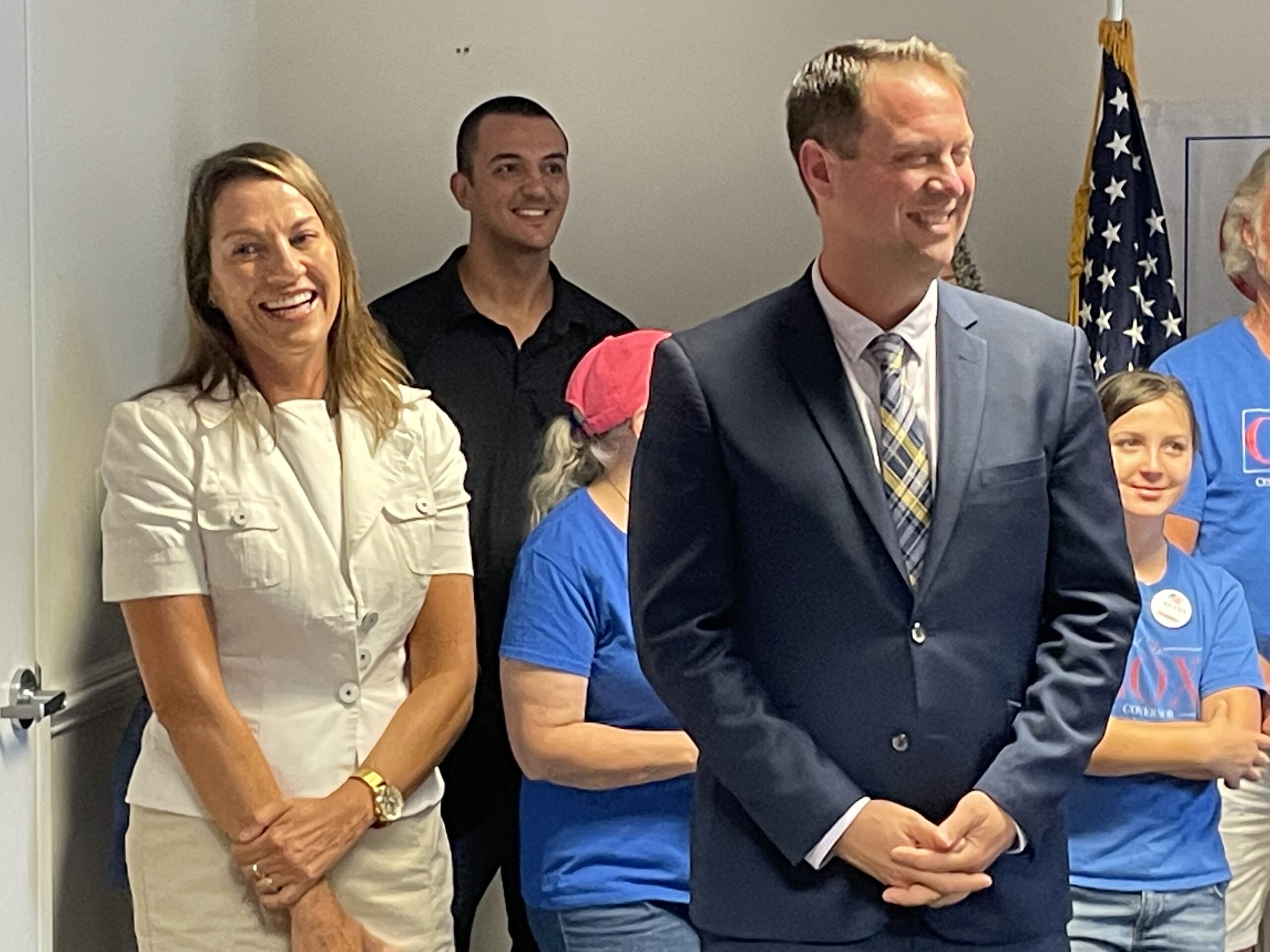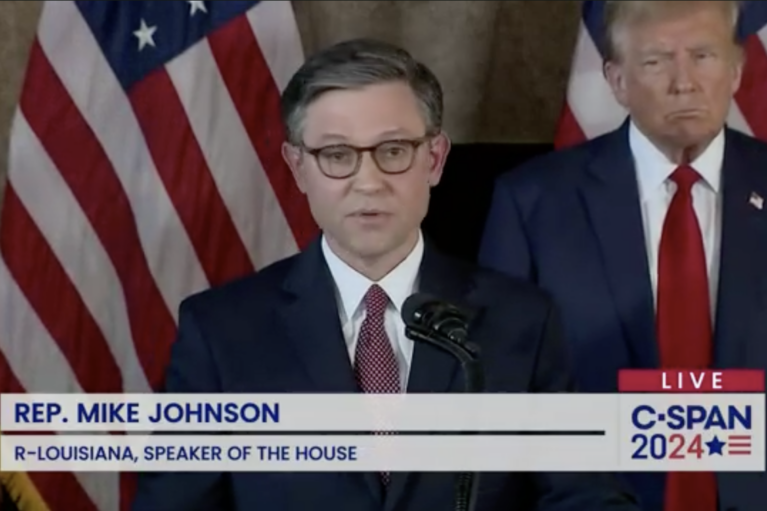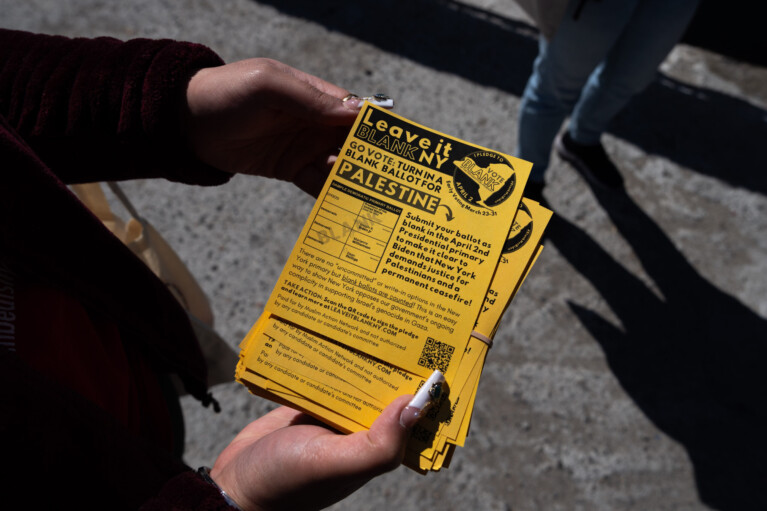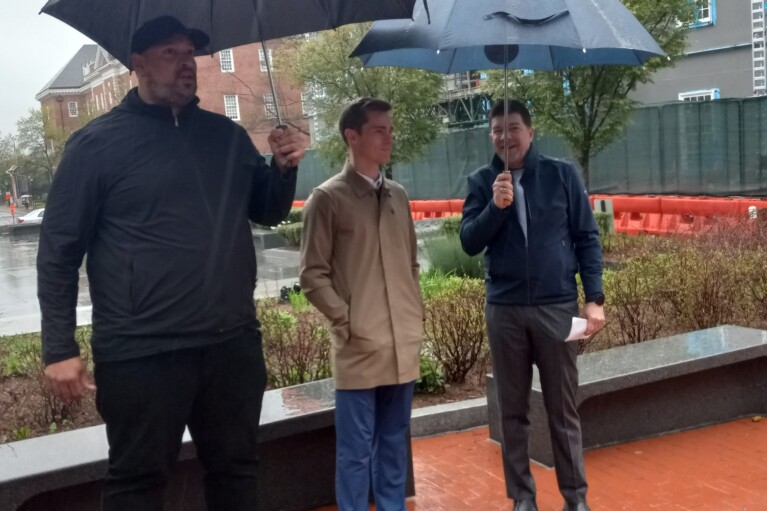Opinion: Election deniers lost in 2022 but haven’t gone away. Here’s what to do next to protect democracy

By Brad Knott
The writer is a former voter protection director for the Maryland Democratic Party and former managing partner of HAVA Partners, an online training company specializing in election administration.
Like many Americans, as the 2022 midterms approached, I feared for our democracy.
I’ve worked in campaigns for years and at levels where I witnessed the rough side of the business. But 2022 felt different, more threatening and more consequential than other elections. The Jan. 6 insurrection showed how extreme Make America Great Again was and is.
Plus, the combination of Donald Trump, foreign intervention, and social media have proven impossible to regulate and very effective in the dark art of misinformation and grievance politics.
The fact that a substantial bloc of the electorate believed the 2020 election was stolen remains both frightening and a clarion call to all democracy advocates to remain vigilant. MAGA was beaten in 2022 but not defeated.
In 2022 I was the voter protection director for the Maryland Democratic Party. With two MAGA supporters on the top of the GOP ticket, the Maryland Democratic Party was fully engaged in combating widespread lies, voter suppression, denialism and attacks on the voting process.
Fortunately, most of what MAGA threatened or planned failed in 2022. All hat and no cattle, as they say.
But with Trump on the ballot again in 2024, should we expect anything but more misinformation and denialism? Of course not! Voter protection efforts need to continue and get stronger. But how?
Right now, voter protection is mostly reactive. When a legislature passes voting restrictions, we react with lawsuits. When misinformation is spread, we react with indignation. When election judges err, we call for clarification or to keep the polls open longer.
What the voter protection community has done to date is good and necessary. I’m proud to stand with them in protecting democracy.
But how do we get ahead of misinformation campaigns and conspiracies? How can we create a pro-democracy electorate where the conspiracy seeds may fall but not spread? Here are some ideas:
Change the mindset of the electorate and the media. Accurate, not fast, results are what democracy needs. Technology creates the illusion we can have things fast and accurate. Cable news demands “breaking news” and we all tune in. We need to change that mindset. Results may take a few days, even weeks. And that’s OK. It takes time to count mail-in ballots and verify results. Unless that’s understood by the electorate, the lag time is oxygen to the conspiracy theorists.
Clarify voters’ rights. Implicit to democracy are voter rights and expectations about voting. Such as the right to vote free of threats, harassment, and chaos at the polls. Election judges should be focused on their jobs, free from harassments and threats. We must demand that candidates accept the results of a transparent electoral process. Voters have the right to have an election completed.
Before MAGA no one there was no need to clarify basic voter rights. After MAGA it is imperative. The electorate must have a clear understanding of their rights so they can judge those who deny them — as they did in the midterms.
Shine light on the voting process. Transparency is a strong disinfectant for misinformation and conspiracies. Our electoral system is resilient and reliable. There is pre-election logic and accuracy testing, checks and balances in the counting and curing of ballots and post-election audits to verify the accuracy of the results. But there’s always a lag time after the polls close and the reporting of reliable results (as opposed to projections of winners). That lag is also an opportunity for deniers to sow doubt. Democracy needs support at that critical time.
We need credible, nonpartisan observers who take time to learn and understand the voting process and will vouch for it. Will they change the minds of hard-core deniers? No. But it will chip away at their base of followers.
Finally, we need a corps of workers identified and trained to work elections regularly. Election administration in the U.S. is bipartisan, not nonpartisan. Having Democrats and Republicans participate in running elections (as Board of Elections judges) and thousands inside and outside the polls observing lends credibility to the process.
Unfortunately, it is increasingly difficult to find Election Day workers. The House of Representatives’ January 6th Committee revealed how MAGA threatened election workers in Georgia. And the increased focus and pressure on election officials and results further dissuades participation.
On a state-by-state basis, a corps of election workers should be recruited, trained in election administration and/or poll observing. These foot soldiers of democracy should be recognized for their work as we recognize other important contributors. This corps would form an available resource for parties seeking poll watchers and monitors. And it could work for the local election boards struggling to recruit and train election judges.
To be successful, these proactive steps must be part of a national, bipartisan effort that supports democracy. As we saw in 2020 and 2022, there are Republicans who support democracy. In many cases it was GOP election officials who were on the front lines defending the results.
As pro-democracy advocates, we can feel relief that many election deniers lost in 2022. But it’s not mission accomplished. We need to remain vigilant and be more proactive in protecting democracy.




 Creative Commons Attribution
Creative Commons Attribution